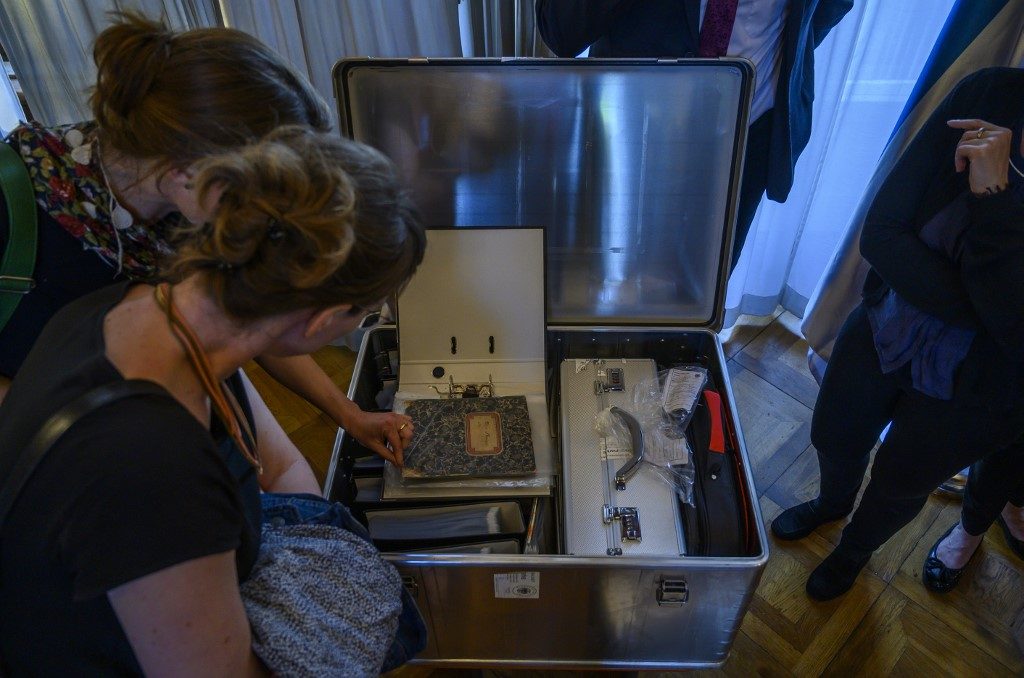SUMMARY
This is AI generated summarization, which may have errors. For context, always refer to the full article.

JERUSALEM —The Israel National Library on Wednesday, August 7 unveiled a missing batch of Czech Jewish writer Franz Kafka’s papers, ending more than a decade of legal wrangling over ownership in Israel and Europe.
As he battled with tuberculosis in an Austrian sanitorium, the author of The Trial and The Metamorphosis asked his close friend Max Brod to destroy all his letters and writings.
After the writer’s death in 1924, Prague-born Brod, also Jewish, felt he could not carry out his friend’s wishes and in 1939 he fled Nazi-occupied Czechoslovakia for Tel Aviv, carrying Kafka’s papers in a suitcase.
Brod then published many of the works and played a key role in establishing Kafka’s success as one of the 20th century’s key literary figures.
Brod’s own death in 1968 ushered in what library spokeswoman Vered Lion-Yerushalmi called “the Kafkaesque story” of the Brod archive, with the hoard being split up and part of it stolen and offered for sale in Germany.
Since March 2008, the national library has been fighting to reassemble the collection and house it in Israel, its chairman David Blumberg told a press conference on Wednesday.
“The national library claimed the transfer of the archive to it because that was Brod’s wish in his will,” he said.
“We stated a process that took 11 years until we completed it two weeks ago.”
In May, following the ruling of a court in Wiesbaden, Germany handed over thousands of papers and manuscripts which Israel said had been stolen a decade ago in Tel Aviv and later offered for sale to the German Literary Archives in Marbach, and to private collectors.
Other parts of the hoard had previously been located in a run-down apartment full of cats in Tel Aviv, stored in a disused refrigerator and also in bank deposit boxes in the city.
The fifth and final cache was located in a vault at the Zurich headquarters of UBS, Switzerland’s largest bank, and released after a Swiss court ruling.
“We brought from Switzerland 60 files which coined original materials,” said Stefan Litt, the national library’s archivist and curator of its humanities collection.
He said he was grateful to UBS for its “heartwarming” cooperation.
He said that most of the material had already been published by Brod but the correspondence between the two friends and Kafka’s other notes, diaries and reflections shed valuable light on Kafka’s personality.
“We have no literary surprises here,” he said.
But “without Max Brod we would not really know who Kafa is”. — Rappler.com
Add a comment
How does this make you feel?
There are no comments yet. Add your comment to start the conversation.